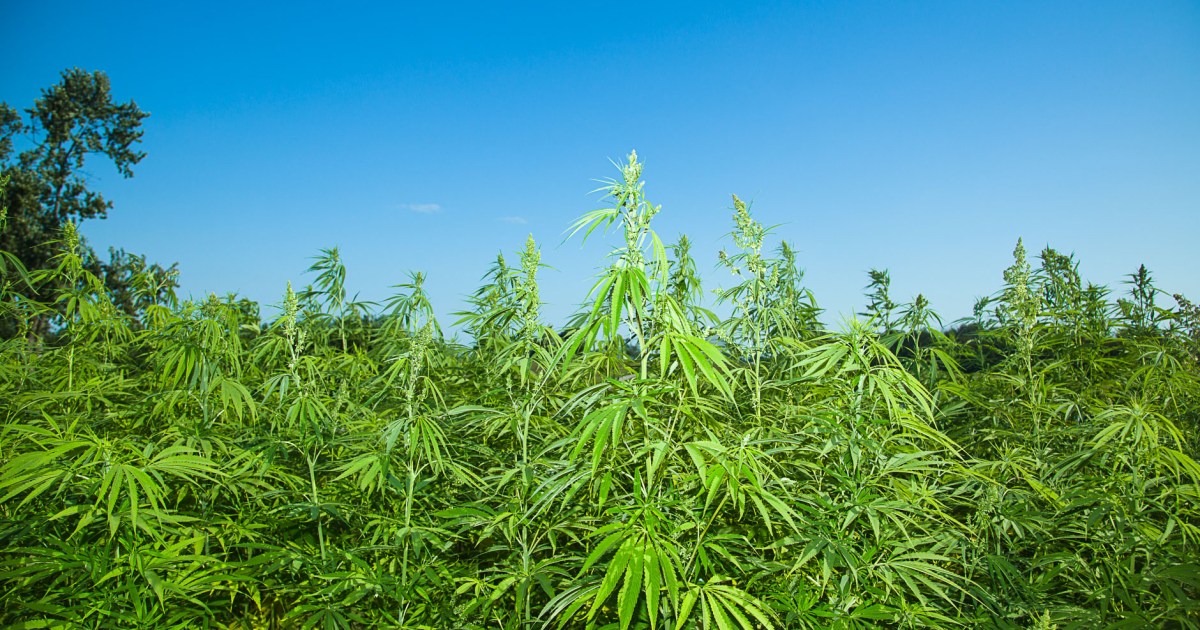RIO DE JANEIRO, BRAZIL – Paraguay has managed to position itself as a leader within the hemp industry worldwide. It is the most advanced country at the Latin American level and exported the most significant amount of hemp in history. Paraguayan hemp was able to enter markets where only countries such as China and Canada had previously entered.
Marcelo Demp, president of the Paraguayan Chamber of Industrial Hemp (CCIP), in an interview with the newspaper La Nación, gave details of the critical development and evolution that the country is experiencing in this area.
Read also: Check out our coverage on Paraguay
The specialist commented that work is being done to manufacture industrialized products at the national level for local and foreign sales. Several products are made from hemp, such as cosmetics, peanut butter, and tea infusions. As the industry grows, they will continue to develop a wider variety of options.

“Paraguay is now the third-largest supplier worldwide. The destinations for Paraguayan hemp as food are Holland, the United Kingdom, the United States, and Australia. As for fiber, it has been exported to France and Canada. Shortly the Italian and Spanish markets await us,” he stressed.
TRAINING
Training is being carried out in seven country departments in coordination with the Ministry of Agriculture. Producers previously registered by MAG are instructed on biosafety and receive technical assistance on care and planting. The producers sign a private contract that stipulates the total purchase of their products and thus work with the peace of mind that whatever they produce already has an assured buyer.
“We are trying to reach 700 hemp producers, approximately one hectare per producer. It is significant growth, considering that in the previous harvest, we had 80 hectares,” explained Demp.
The producers are paid eleven thousand guaraníes (US$1.60) per kilo of seed and one thousand guaraníes (UD$0.14) per leaf. Another advantage offered by the plant is fiber. Currently, a partnership has been closed with an essential corporation from the United States. As of March of next year, the producer will also be able to sell hemp fiber. In this way, it will receive three sources of income.
The certification is international, the product is of the highest quality, and demand is constant. All exported goods have passed the most rigorous controls of the United States Department of Agriculture (USDA) and the Food and Drug Administration (FDA). Paraguayan hemp gave microbiological and pathogen studies, meeting all the requirements and demands that allowed it to be marketed worldwide.
INDIGENOUS COMMUNITY TO PRODUCE HEMP
As a preview, the vice-president commented that next Friday, November 19, hemp will be trained and planted with the Mbói Jagua indigenous community, located in Canindeyú. These native producers will receive seeds to produce 20 hectares of hemp.
“This will be the first industrial cannabis production with an indigenous community worldwide. This will position Paraguay as an innovative country since production is not only carried out at the level of peasant families, where we are also the pioneer country, but we also seek to expand to more native communities, providing them with sources of work and income,” he said.
The hemp variety produced in the country resulted from work carried out between the National University of Asunción and certification institutions in the United States. After a three-year process, the certified authorization was received so that with the cultivation of 100,000 hectares per year, Paraguay will become the first carbon-neutral country in the world.
In this way, hemp will act as a recipient of all the carbon generated, purifying the air and filtering pollutants.
CROP OF NATIONAL INTEREST
In August 202, President Mario Abdo Benítez of Paraguay had issued a decree aimed at shaping the country’s industrial hemp sector through incentives and other government support, declaring hemp a “crop of national interest.”
Signed Aug. 28, 2020, the national program supports the development and commercialization of industrial hemp and advanced research, with emphasis on helping the country’s many small farmers and cooperatives.
“The decree is a major landmark in the advancement of hemp in Latin America, and probably in the world,” said Lorenzo Rolim da Silva, President of the Latin American Industrial Hemp Association back then.
“By declaring hemp as a plant of national interest and assuring companies and farmers that hemp will be given priority and be incentivized, Paraguay is taking solid steps towards consolidating itself as a leader in the region,” Rolim da Silva said.

